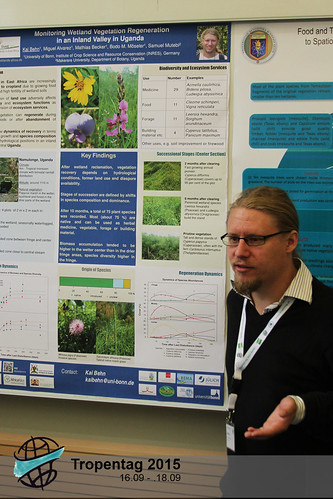Student Reporter 2015
Morning Cuppa: The Agroforestry Behind Our Coffee Breaks
Fri, 09/18/2015 - 09:10 — Rachel Friedman
At conferences, we live for coffee breaks. They are the times when we take a breather from presentation after presentation, the places where we meet new people and reconnect with old colleagues, and of course the spot to refuel. For many of us, that sustenance of choice is coffee, and (at least in my book) chocolate-covered biscuits are the best complement. That’s all pretty standard for organized events. But what makes the coffee breaks at a meeting like Tropentag unique is the array of experts present to relay the story behind the coffee, tea, biscuits, and fruit.
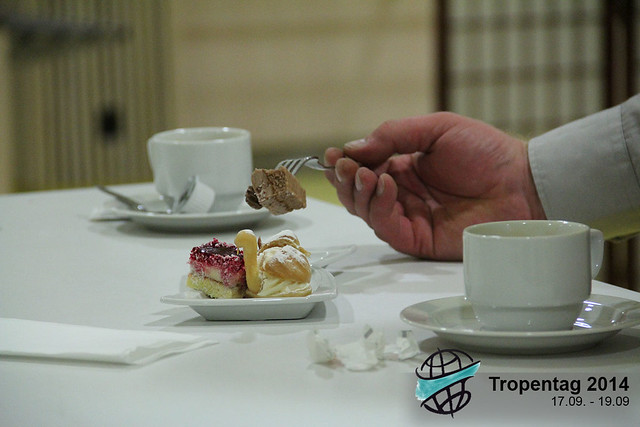 So as I wandered around posters this morning, it struck me that these studies are not merely relevant to those specific geographies or ecosystems and to the local people and communities. There are also ties not very far removed from life outside of our study sites. And yet, we don’t always or even often think about what lies beyond the mug when sipping at a conference venue.
Continue...
So as I wandered around posters this morning, it struck me that these studies are not merely relevant to those specific geographies or ecosystems and to the local people and communities. There are also ties not very far removed from life outside of our study sites. And yet, we don’t always or even often think about what lies beyond the mug when sipping at a conference venue.
Continue...
 So as I wandered around posters this morning, it struck me that these studies are not merely relevant to those specific geographies or ecosystems and to the local people and communities. There are also ties not very far removed from life outside of our study sites. And yet, we don’t always or even often think about what lies beyond the mug when sipping at a conference venue.
Continue...
So as I wandered around posters this morning, it struck me that these studies are not merely relevant to those specific geographies or ecosystems and to the local people and communities. There are also ties not very far removed from life outside of our study sites. And yet, we don’t always or even often think about what lies beyond the mug when sipping at a conference venue.
Continue...
Can Science Truly Solve Conflicts?
Thu, 09/17/2015 - 18:41 — Suzanne Myada
We all agree that science can do a lot of good. Everyday we see and experience its positive impacts in various facets such as healthcare, nutrition and technology. In Tropentag 2015's session tagged "Cooperation and Conflict Management", a wide range of research and studies showing the role of science were presented and discussed.
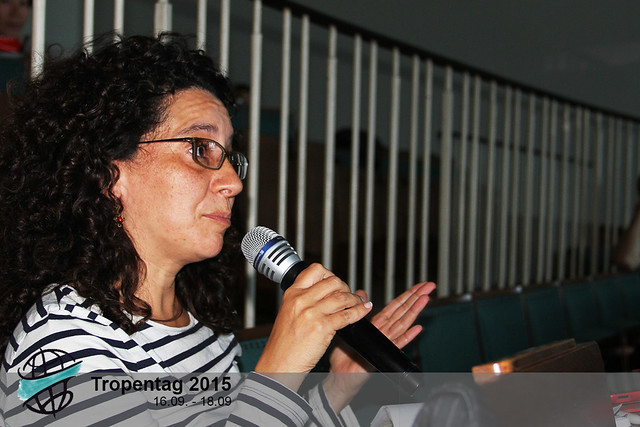 The audience is a big part of all sessions in Tropentag
Continue...
The audience is a big part of all sessions in Tropentag
Continue...
 The audience is a big part of all sessions in Tropentag
Continue...
The audience is a big part of all sessions in Tropentag
Continue...
Value Chains: Opportunities and Challenges in the Tropics and Sub-Tropics
Thu, 09/17/2015 - 18:29 — Pacifique Ingabire
by Pacifique Ingabire and Nizam Hussein
When people talk about value chains, we may understand how products move from one actor to another, and of course when you are a researcher or a student you hear it from lectures; but do we really conceptualize value chains in the same way? Given the variety contexts and questions in which it is used, do researchers have a common, concrete definition for this concept, or is it a vague term that is used differently depending on the objectives of the researcher?
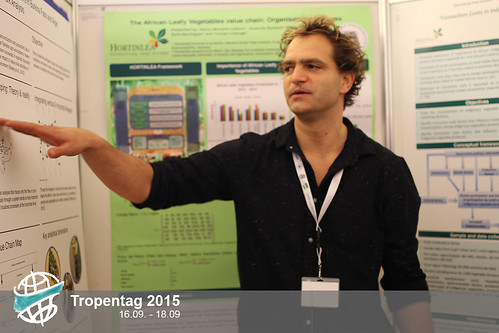 Christian Klein
Continue...
Christian Klein
Continue...
Why there is no “Real World” vs. “Scientific Numbers”
Thu, 09/17/2015 - 17:11 — Virginia
The problem of aggravating hunger in the world is one of the most recurring topics for every student of economics, environmental science etc. Most of the time, however, it is treated more as a grievous occurrence happening somewhere, and there is probably some NGO dealing with the matter already, right?
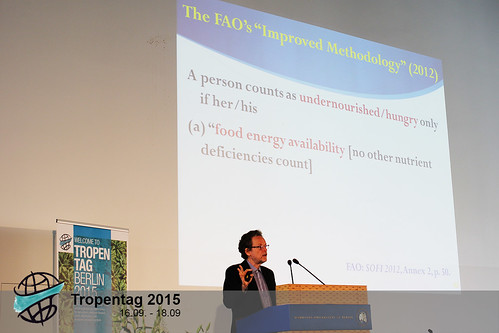 Continue...
Continue...
 Continue...
Continue...
Keynote Speakers Revisited
Thu, 09/17/2015 - 16:17 — Virginia
Here is our video feature on two keynote speakers from yesterday's opening, former colleagues Brave Ndisale and Shenggen Fan, who so kindly found some time for us amidst their busy schedules.
The talk was about women in food systems and the interplay of international organizations after a fairly discussed opening ceremony.
A bit of Berlin: Three Must-See Districts
Thu, 09/17/2015 - 15:06 — Michela
Did you know that Berlin is eight times the size of Paris, that it has 150-plus museums and even more of contemporary art galleries, that the central Tiergarten comprises 520 acres, or did you know that here there is museum dedicated to the famous currywurst?
 Discover our top 3 districts...
Discover our top 3 districts...
 Discover our top 3 districts...
Discover our top 3 districts...
Regeneration of Wetland Vegetation in Uganda
Thu, 09/17/2015 - 13:53 — Philip TestroetIndigenous Vegetables, Rubber, Manure and Much More....
Thu, 09/17/2015 - 13:04 — Suzanne Myada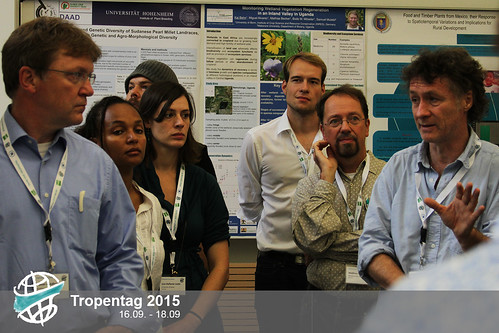 One of the highlights of this year's Tropentag is the introduction of the elevator pitch. This refers to a short summary that can be delivered in the time span of an elevator ride. During the guided poster session "Climate change, Carbon Sequestration and Greenhouse Gases" presenters were allowed to speak for only two minutes.
Continue after this pitch :)
One of the highlights of this year's Tropentag is the introduction of the elevator pitch. This refers to a short summary that can be delivered in the time span of an elevator ride. During the guided poster session "Climate change, Carbon Sequestration and Greenhouse Gases" presenters were allowed to speak for only two minutes.
Continue after this pitch :)





